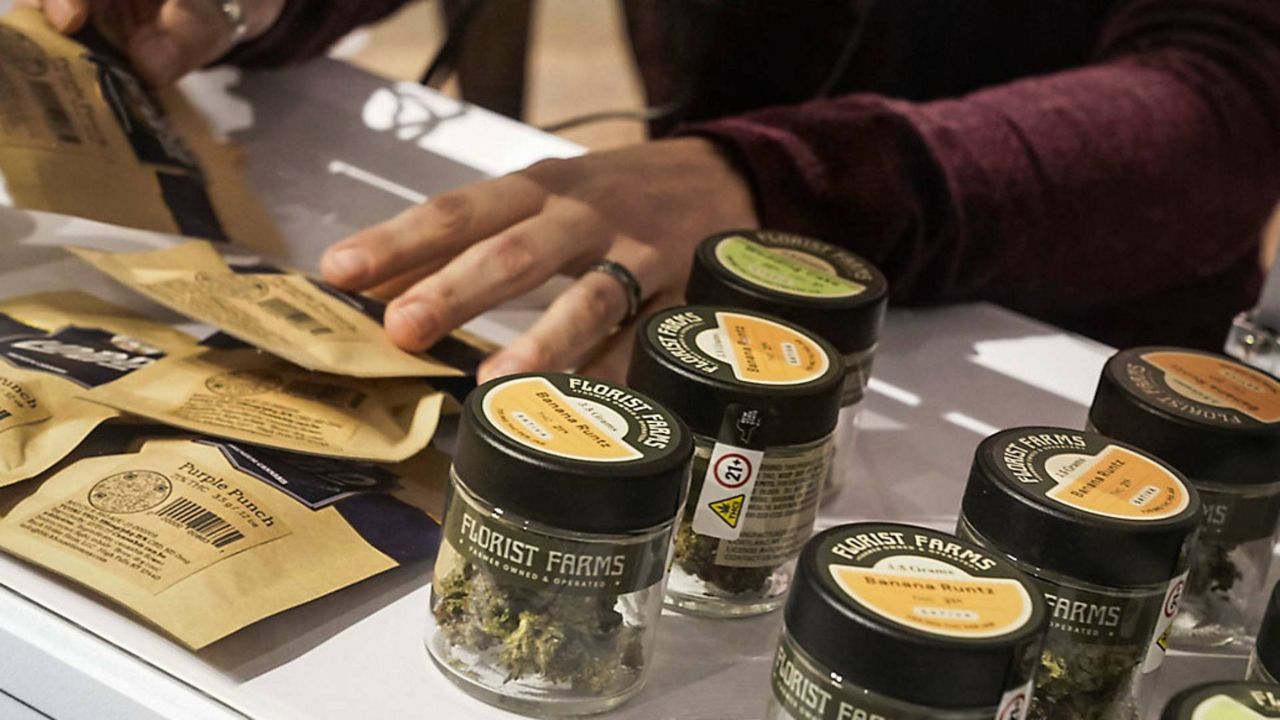An event billed as the largest ever gathering of cannabis professionals in Maine is taking place this weekend at the Augusta Civic Center.
The 8th Annual Maine Cannabis Convention will feature more than 125 exhibitors and 30 speakers, including a speech by Catherine Lewis, executive director of the Medical Marijuana Caregivers of Maine.
Lewis will give a “state of the state’s medical cannabis industry” talk, according to the New England Cannabis Network, the convention sponsor.
A new exhibitor this year will be Massachusetts-based The Drinkable Company, which makes cannabis infused coffee, tea and soda.
“Anybody taking cannabis seriously in the Maine market should attend these shows,” said Chris Silva, the company’s sales representative.
The company has some distribution in Maine already but is hoping to get into more stores with their beverages that contain 5mg of THC — the chemical that makes you feel high — per 12 ounce can.
Silva pitches them as an alternative to alcohol that’s “hangover free” and not addictive.
The convention comes three years after Maine began allowing recreational cannabis sales and the industry has grown to more than 250 businesses with “several thousand new employees,” according to the Office of Cannabis Policy.
Retail sales doubled from 2021 to 2022, growing from about $82 million to nearly $159 million.
Through July, recreational cannabis retail sales have topped $118 million, representing more than two million transactions.
“The adult use side is growing rapidly,” said John Hudak, director of the state cannabis office. “New businesses are opening every month for cultivation, manufacturing and retail.”
At the same time, Maine has maintained a medical marijuana program that was first approved by voters in 1999.
That program saw a 25% decrease in the number of registered caregivers from 2021 to 2022, with the lowest number of caregivers since registrations began in 2014, according to an annual report on the industry.
Last year, there were 2,276 registered caregivers, down from 3,032 the previous year.
According to a survey conducted by the state’s cannabis office, more than half of respondents said that oversupply of product and lower prices led them to drop their registrations. Others listed utility costs, business costs, and banking regulations and fees as reasons they did not renew their licenses.
However, even though the number of caregivers dropped, the number of active dispensaries nearly tripled and patient certifications continued to increase, the report noted.
In an interview, Hudak said his office is committed to making sure both the medical and recreational industries continue to serve patients and consumers in Maine.
“Nearly 10% of adult Mainers are registered medical program participants,” he said. “It’s a commitment of this office that adult use doesn’t become competitive with the medical program.”
Silva said from his perspective, the cannabis industry is still growing in Maine and that recreational consumers are likely to see more products from other states in the coming years.
Stores selling recreational cannabis opened in Massachusetts in 2018.
“In Massachusetts, you see a ton of multi-state operators with a wide variety of branded products,” he said, noting that they often come from California, Colorado and Michigan. “You’ll start seeing more products you see in other states coming to Maine in the next couple of years.”
The convention runs from 10 a.m. to 3 p.m. Saturday and Sunday at the Augusta Civic Center. A one-day pass costs $20 and a two-day pass is $30. Attendees must be at least 18 years old unless accompanied by a guardian.



